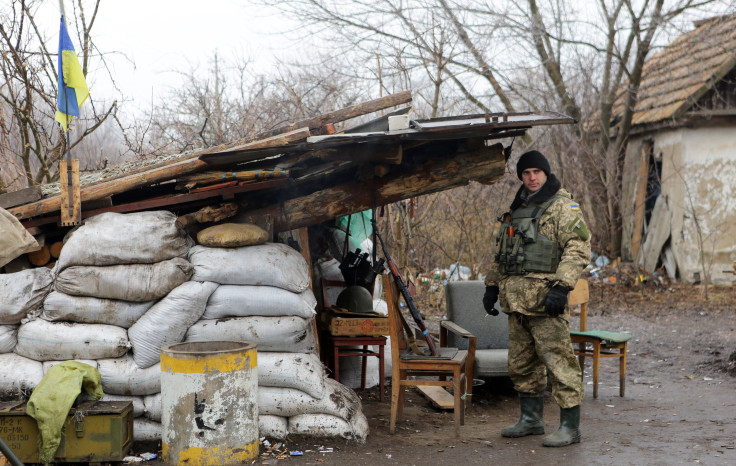Amid Russia Tensions, Ukraine To Call For UN Peacekeeping Mission In Conflict-Torn East

Ukraine took its place just Friday as a rotating nonpermanent member of the United Nations Security Council and was already preparing Monday to call for a peacekeeping mission to be sent to the Donbass region, where the low-level war between government forces and Russian-backed rebels continues. The move is likely to trigger objections from the Kremlin, which continues to deny any direct military role in the conflict.
“We have a definite plan of action, and we know what we will do firsthand,” said Ukrainian Ambassador Volodymyr Yelchenko, local media reported. “As you know, Russia has blocked the initiative so far. But we will try to find ways to resolve this issue.”
Yelchenko said the negotiation process for any kind of peacekeeping force has not yet begun, is likely to take several months and faces an uphill fight with Russia and perhaps other permanent members of the Security Council opposing the proposal. China, France, Russia, the U.K. and the U.S. make up the five permanent members.
“I can only say that we are talking about some U.N. Security Council members, including those that are major contributors to the budget of the organization,” Yelchenko said. “Their position is due to the fact that a possible peacekeeping mission to Ukraine will be very costly to the U.N. budget.”
Ukraine has called for at least 25,000 troops to take part in a peacekeeping mission. More than 9,000 people have been killed and more than 20,000 wounded in the conflict that began in April 2014, pitting Ukrainian government forces against Russian-backed separatists. The war has devastated the country’s eastern industrial heartland and displaced more than 1.4 million people.
“The conflict zone remains highly militarized. There is a danger of serious escalation,” said U.N. Deputy Secretary-General Jan Eliasson last month. “All parties must, without delay, work toward a durable political solution. Greater political will and flexibility must be demonstrated by all concerned.”
The Minsk II peace agreement signed last year has failed to put an end to the conflict. Officials from Ukraine, Russia, France and Germany, who negotiated the pact, have prolonged the peace deal into 2016 in the hopes that the terms will be met. Officials are scheduled to meet later this month to review progress.
Ukraine’s previous call for peacekeeping forces in February 2015 was rejected by the Kremlin and Russian-backed rebels.
© Copyright IBTimes 2024. All rights reserved.












